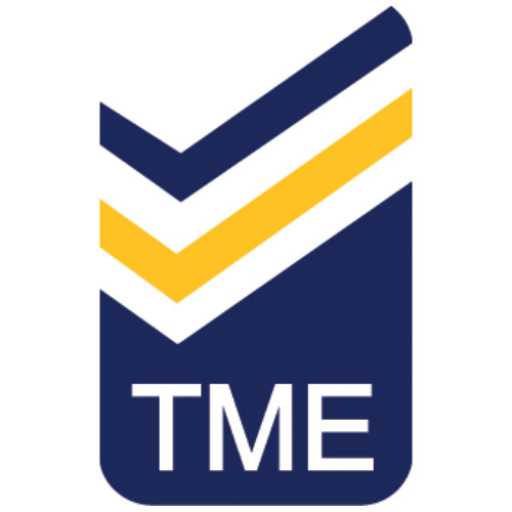Photos of university / #johnshopkinsu
Security Informatics at Johns Hopkins University is a comprehensive graduate program designed to equip students with the essential skills and knowledge necessary to address the complex challenges of cybersecurity and information assurance in our increasingly digital world. This interdisciplinary field merges principles from computer science, information technology, policy, and management to develop a deep understanding of how to safeguard sensitive information, protect critical infrastructure, and respond effectively to security threats. The program emphasizes hands-on learning, allowing students to work with real-world scenarios and cutting-edge technologies to develop practical solutions for security vulnerabilities. Courses cover a broad spectrum of topics, including network security, cryptography, risk management, security policy, cyber defense strategies, and the legal and ethical considerations surrounding information security. Students also have opportunities to participate in research projects with faculty renowned in the field, gaining insights into the latest advancements and emerging trends in cybersecurity. The curriculum is designed to foster a multidisciplinary approach, encouraging collaboration between students from diverse backgrounds such as computer science, engineering, policy, and management. Graduates of the Security Informatics program are prepared for careers in various sectors, including government agencies, private corporations, healthcare organizations, and international institutions, where they can contribute to developing secure systems, managing security risks, and enhancing overall information protection. Johns Hopkins University's strong emphasis on research and practical experience ensures that students graduate with the capabilities needed to lead and innovate in the security informatics field. With a challenging and dynamic academic environment, the program aims to produce graduates who are not only technically proficient but also capable of understanding and influencing policy and strategic decision-making in security management.
Upon admission to the Master of Science in Security Informatics, a student is assigned a graduate advisor from the Information Security Institute who must approve the courses to be applied to the M.S.S.I. degree.
The Master of Science in Security Informatics program has a course requirement of a minimum of 10 courses, plus a capstone project including a report and presentation. Students must choose one of two tracks – Technology & Research Track or Policy & Management Track.
All courses supporting the M.S.S.I. are categorized as one of four areas of Technology, Policy, Health, and Management. Each course is further classified into Core, Elective or Foundational category.
The Technology & Research Track program of study must satisfy the following course distribution requirements:
- Five Technology courses: at least four Core Technology courses including at least one Core Technology course in Cryptography.
- Three Core Policy/Management/Health courses: at least one Core Policy course and one Core Management course.
- Two additional courses from Core or Elective Technology categories; or when deemed appropriate relative to a student’s background, interests, and goals AND with the prior approval of the faculty advisor and the institute, from other course areas.
The Policy & Management Track program of study must satisfy the following course distribution requirements:
- Three Technology courses: at least two Core Technology courses including at least one Core Technology course in Cryptography.
- Five Core/Foundational Policy/Health/Management courses: at least one course from each of Core Policy/Management/Health categories and at least one Foundational Management course.
- Two additional courses from Core/Elective Technology or Core/Foundational Policy/Management/Health categories; or when deemed appropriate relative to a student’s background, interests, and goals AND with the prior approval of the faculty advisor and the institute, from other course areas.
Project Requirement
The students register for EN.650.736/EN.650.737/EN.650.738 for the capstone project. These courses are not counted toward the 10-course requirement.
In general, the M.S.S.I. Capstone Project will include both technology and non-technology components, and will be conducted within a team-structured environment comprised of students and faculty mentors (plus external mentors if appropriate). These projects will generally be sponsored by government/industry partners and affiliates of the Information Security Institute, and can also be related to faculty research programs supported by grants and contracts. They should relate to real-world problems and exhibit both theoretical and practical significance. The project must be documented by a report and presentation, as well as other applicable deliverables including but not limited to system prototypes, utility libraries, experimental demonstrations, conference or journal submissions, and so on. It should follow the best practice of software engineering.
Students should actively initiate the project while communicating with the potential faculty mentor for technical issues and the faculty advisor for project management. They are expected to develop a project plan at the end of the second semester. The project is expected to have a proposal approved at the start of the third semester and be finished by the end of the third semester. A presentation will be scheduled when the project concludes. The faculty mentor should approve each milestone of the project with the faculty advisor being informed. When the project is completed with all the deliverables, the faculty advisor assigns a score upon the recommendation of the faculty mentor.
Additional Course Requirements
- All courses toward the degree requirement must be 400-level or above. Other courses can be used with the approval of the Institute.
- Courses not found on the area-specific lists can be used to meet area requirements with prior approval from the student’s advisor and the Institute.
- At most two independent study courses can be counted toward the course requirements.
- No courses with grades of P may be counted with the exception of independent study courses.
- At most two courses may be transferred from other institutions. The student’s faculty advisor and the director of Information Security Institute must approve such transfer courses.
- The overall grade point average of the courses counted towards the coursework requirements must be 3.00 or higher.
- At most two courses with grade less than B- may be counted towards the course work requirements. No courses with grade less than C- may be counted.
- A grade of D or F results in probation. A second D or F is cause for being dropped from the program.
JHUISI Courses
| EN.650.401 | Introduction to Information Security | 3 |
| EN.650.414 | Rights in Digital Age | 3.00 |
| EN.650.424 | Network Security | 3.00 |
| EN.650.431 | Ethical Hacking | 3.00 |
| EN.650.432 | ||
| EN.650.433 | Embedded Computer Systems | 3.00 |
| EN.650.445 | Practical Cryptographic Systems | 3.00 |
| EN.650.457 | Computer Forensics | 3.00 |
| EN.650.458 | Introduction to Cryptography | 3.00 |
| EN.650.460 | Software Vulnerability Analysis | 3.00 |
| EN.650.461 | Cloud Computing Security | 3.00 |
| EN.650.471 | Cryptography & Coding | 4.00 |
| EN.650.621 | Critical Infrastructure Protection | 3.00 |
| EN.650.633 | ||
| EN.650.640 | Moral & Legal Foundations of Privacy | 3.00 |
| EN.650.654 | Computer Intrusion Detection | 3.00 |
| EN.650.655 | Implementing Effective Information Security Projects | 3.00 |
| EN.650.657 | Advanced Computer Forensics | 3.00 |
| EN.650.661 | Human Factors in Information Security | 3.00 |
| EN.650.736 | Information Security Projects | 1.00 |
| EN.650.737 | Information Security Projects | 1.00 |
| EN.650.738 | Information Security Projects | 1.00 - 4.00 |
All courses supporting the M.S.S.I. are categorized as one of four areas of Technology, Policy, Health, and Management. Each course is further classified into Core, Elective or Foundational category.
- For seven-week course modules, e.g., several courses offered through the Whiting School of Engineering Center for Leadership Education (CLE), two of them count as one course of 3 credit hours.
- Two quarter-based courses, e.g., several courses of course numbers starting with ME from the School of Medicine Division of Health Sciences Informatics, are equivalent of one WSE course of 3 credit hours.
Core Technology Courses
| EN.600.442 | Modern Cryptography | 3.00 |
| EN.600.443 | Security & Privacy in Computing | 3.00 |
| EN.600.642 | Advanced Topics in Cryptography | 3.00 |
| EN.600.643 | Advanced Topics in Computer Security | 3.00 |
| EN.650.401 | Introduction to Information Security | 3 |
| EN.650.424 | Network Security | 3.00 |
| EN.650.431 | Ethical Hacking | 3.00 |
| EN.650.445 | Practical Cryptographic Systems | 3.00 |
| EN.650.457 | Computer Forensics | 3.00 |
| EN.650.458 | Introduction to Cryptography | 3.00 |
| EN.650.460 | Software Vulnerability Analysis | 3.00 |
| EN.650.461 | Cloud Computing Security | 3 |
| EN.650.471 | Cryptography & Coding | 4.00 |
| EN.650.654 | Computer Intrusion Detection | 3.00 |
| EN.650.657 | Advanced Computer Forensics | 3.00 |
| EN.650.661 | Human Factors in Information Security | 3.00 |
Elective Technology Courses
| EN.600.450 | Network Embedded Systems & Sensor Networks | 3 |
| EN.600.463 | Algorithms I | 3 |
| EN.600.471 | Theory of Computation | 3.00 |
| EN.650.433 | Embedded Computer Systems | 3.00 |
| EN.650.621 | Critical Infrastructure Protection | 3.00 |
| EN.650.840 | Information Security Independent Study | 3.00 |
Core Policy Courses
| EN.650.414 | Rights in Digital Age | 3.00 |
| EN.650.640 | Moral & Legal Foundations of Privacy | 3.00 |
| EN.660.311 | Law and the Internet | 3 |
Core Health Courses
| AS.280.340 | Fundamentals of Health Policy & Management | 3.00 |
| School of Medicine courses ME.600.900, ME.600.901, ME.600.903, and ME.600.906 may be taken to fulfill core health course requirements. | ||
Core Management Courses
| EN.650.653 | Financial Issues in Managing a Secure Operation | 3.00 |
| EN.650.655 | Implementing Effective Information Security Projects | 3.00 |
Foundational Management Courses
| EN.663.644 | Writing Articles and Technical Reports | 1.50 |
| EN.663.645 | Improving Presentation Skills for Scientists and Engineers | 1.50 |
| EN.663.660 | Managing People and Resolving Conflicts | 1.50 |
| EN.663.670 | Project Management | 1.50 |
| EN.663.671 | Leading Change | 1.50 |
| EN.663.673 | Leading Teams in Virtual, International and Local Settings | 1.50 |
| EN.663.674 | Fundamentals of Management | 1.50 |
Elective Policy/Health/Management Courses
| The following are sample courses offered by the Bloomberg School of Public Health, the Carey Business School, and the Krieger School of Arts and Sciences.* | ||
| PH.300.651 | Introduction to U.S. Healthcare System Policy | |
| AS.406.665 | Art and Practice of Intelligence | |
- Letters of Recommendation (2),
- GRE,
- TOEF/IELTS,
- Statement of Purpose,
- Transcripts
The Security Informatics program at Johns Hopkins University offers various financing options to support students in their academic pursuits. Prospective students are encouraged to explore federal and state financial aid programs, including federal Pell Grants, Stafford Loans, and work-study opportunities, which can significantly reduce the financial burden associated with graduate studies. Additionally, the university provides institutional scholarships and assistantship positions, often awarded based on academic merit, research potential, and relevant experience in the field of security informatics. Applicants are advised to complete the Free Application for Federal Student Aid (FAFSA) early to determine eligibility for federal aid programs. Johns Hopkins University also offers private loans and external scholarships that students can leverage to cover tuition and living expenses. International students should inquire about available funding options, as they may have access to different scholarships or assistantship opportunities. To facilitate financing, the university's financial aid office provides comprehensive counseling and resources to guide students through the application process. Many students also secure funding through internships and research grants associated with the program, which not only support their studies but also enhance practical experience in security informatics. Overall, the program's financing options aim to make advanced education accessible, allowing students to focus on their academic and professional development without excessive financial stress.
Security Informatics at Johns Hopkins University is a specialized interdisciplinary program designed to equip students with the knowledge and skills necessary to address complex security challenges in the digital age. The program integrates principles from computer science, information technology, and security studies to provide a comprehensive understanding of cyber defense, data protection, and threat mitigation. Students explore topics such as cryptography, network security, cyber policy, and privacy law, gaining practical experience through hands-on projects and research opportunities. The curriculum emphasizes both technical proficiency and an understanding of the societal impact of security technologies, preparing graduates for careers in government agencies, private cybersecurity firms, and international organizations. Johns Hopkins University leverages its strong research infrastructure and collaboration with industry partners to offer students access to cutting-edge tools and real-world scenarios. The program also focuses on developing critical thinking, problem-solving skills, and ethical awareness to ensure responsible practice in security roles. With faculty experts and a diverse student body, the Security Informatics program fosters an innovative learning environment that encourages exploration and advanced inquiry into emerging security issues. Graduates of this program are well-positioned to contribute to national security, corporate cybersecurity, and global peacekeeping efforts, making meaningful impacts in safeguarding digital infrastructure and information integrity worldwide.








